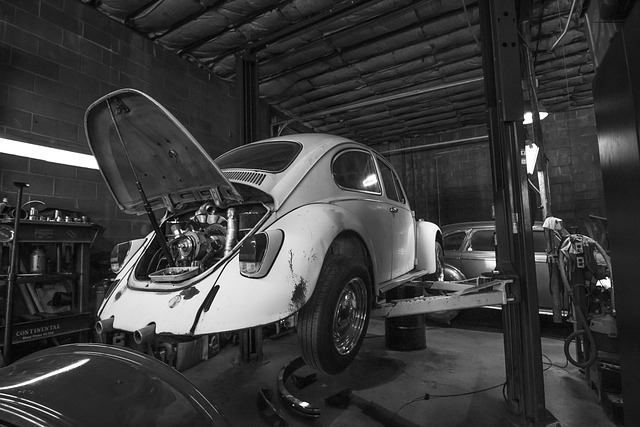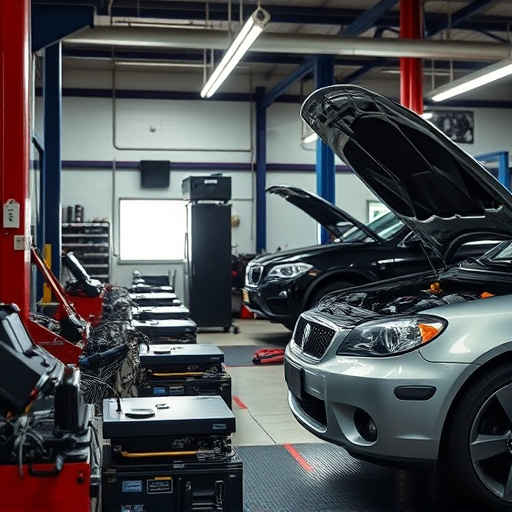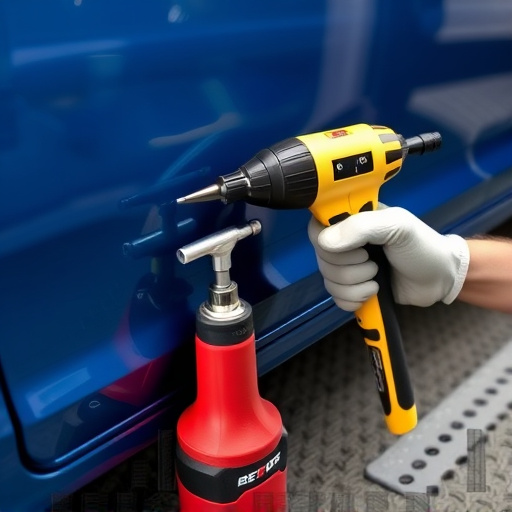Quality control inspection is vital for auto repair shops, ensuring customer satisfaction by identifying and rectifying issues early. Collaboratively led by inspectors, this process involves meticulous review of each repair stage to maintain compliance with specifications. Effective communication post-inspection, including clear updates and reminders, streamlines processes, enhances customer trust, and reduces repeat visits.
Quality control (QC) inspection is a vital process that safeguards product excellence, fosters customer satisfaction, and ultimately reduces return visits and issues. By meticulously scrutinizing products at various stages of production, QC measures prevent defects, ensuring only high-quality items reach the market. This article delves into the significant impact of quality control, highlights key roles in maintaining product integrity, and offers strategies to optimize the post-inspection process, all essential aspects for any manufacturing business aiming for long-term success.
- Understanding Quality Control Inspection Impact
- Key Roles in Ensuring Product Quality
- Strategies to Enhance Post-Inspection Process
Understanding Quality Control Inspection Impact

Quality control inspection plays a pivotal role in enhancing customer satisfaction and retention, which is paramount for any car body shop or car repair shop. By implementing rigorous inspection processes, shops can identify and rectify issues early on, ensuring that vehicles leave the premises in pristine condition. This proactive approach significantly reduces the likelihood of customers experiencing problems post-repair, thus lowering the chances of return visits due to faulty work.
In the context of a fender bender or any minor collision, a comprehensive quality control inspection ensures that every component is accurately assessed and repaired. This meticulous process involves not just the visible parts but also hidden elements like panels, frameworks, and paint jobs. The impact is twofold: it prevents customers from facing unexpected issues later, fostering trust in the car body shop’s capabilities; and it upholds the reputation of the repair shop as a reliable and skilled service provider.
Key Roles in Ensuring Product Quality

In any manufacturing or service industry, ensuring product quality is a collaborative effort involving multiple key roles. In the context of collision repair services and body shop services, the team responsible for quality control inspection plays a pivotal role in maintaining high standards. These inspectors are the gatekeepers, scrutinizing every aspect of the repair process to prevent issues before they occur. They verify that parts, such as fender repair components, are correctly installed, aligned, and meet the required specifications.
The synergy between quality control inspectors, skilled technicians, and management is essential for delivering flawless results. Inspectors provide critical feedback, ensuring technicians adhere to best practices. In turn, this helps in minimizing errors and defects, thereby reducing the likelihood of costly return visits due to substandard work. Effective quality control inspection acts as a shield against potential issues, enhancing customer satisfaction and fostering trust in collision repair services and body shop services.
Strategies to Enhance Post-Inspection Process

After a quality control inspection, several strategies can be implemented to ensure a smooth transition and minimize post-inspection issues. One key approach is effective communication with both customers and the repair team. Clear and timely updates about any identified discrepancies or further required work can manage expectations and prevent dissatisfaction.
Additionally, establishing a robust follow-up system within the auto collision center is vital. This involves setting up reminders for customers to return for final checks, providing easy access to contact information, and offering prompt assistance for any concerns that arise post-inspection. By fostering open dialogue and implementing these strategies, collision repair processes can be streamlined, reducing the need for repeat visits and enhancing overall customer satisfaction.
Quality control inspection plays a pivotal role in preventing return visits and issues by ensuring product excellence. By fostering clear roles and implementing effective post-inspection strategies, businesses can significantly enhance customer satisfaction and retention. Investing in rigorous quality control processes is not just a best practice; it’s a competitive advantage that builds brand loyalty and drives success in today’s marketplace.














